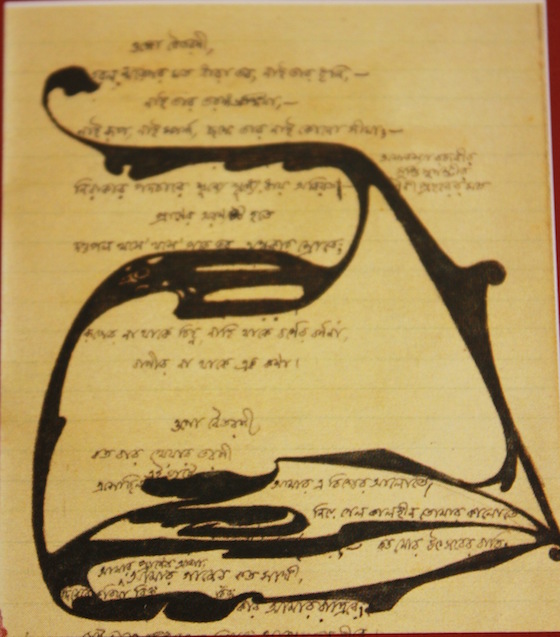Rabindranath Tagore wrote a short story titled “Dhvangsa” (Destruction), based on the Second World War. The story ends with the narrator reciting a poem on war. Here, eminent translator and theatre and film critic Samik Bandyopadhyay reads the story and the poem. Also read his introduction to the story and a translated excerpt from the poem into English below.
From “Tagore: Redefining Culture”
Samik Bandyopadhyay
In a story, “Dhvangsa” [lit. “Destruction”], written on 6 March 1941, barely five months before his death, Tagore wrote of a father and daughter nurturing a garden “a little distance away from Paris,” and sharing a life of perfect contentment, taking pride in their home, “costly home, not made of a King’s jewels, but of the love that the two of them shared, and hence nowhere else to be found,” till a German bomb landed on it: “the only touch of kindness that it had was that the girl Camille did not live to see the destruction.” The story closes with these lines:
Everyone was stunned as they measured the might of civilization. The shell from the long-distance machine gun had covered twenty five miles. This is what one calls the Progress of Time. In yet another country, yet another time, the might of civilization has been tested, its evidence visible only in the dust, in nothing else. That was in China, which had to fight with two big civilized nations. There was a wonderful palace in Pekin, with a collection of exhilarating works of art gathered over a long time, marked with human craftsmanship that has remained unmatched, and will remain so. China lost the war. It was doomed to lose anyway, for civilization has achieved exemplary mastery in the art of wounding and killing. But all that wonderful art, product of the meditation of masters over so many generations, was lost for ever, clawed and lacerated by civilization within a little time. I had gone to Pekin on a visit, and saw it with my own eyes. I’ve nothing more to add.
The story is followed by a poem that begins with an evocation of those times: “When we considered life sacred / And knew humankind to be human,” and then,
In the West appeared civilization,
Planting thorns all the way,
And grinding its teeth.
We had thought we knew what civilization was,
Now we find it desecrated and humiliated.
Decked in machine and might,
Civilization is bent on repressing mankind.
 From a manuscript by Rabindranath Tagore, via Potpourri
From a manuscript by Rabindranath Tagore, via Potpourri
Read the Bangla original here, and more anti-war poems by Rabindranath Tagore here and here.
The essay by Samik Bandyopadhyay was first published in the IIC Quarterly,published by India International Centre.
Also see Samik Bandyopadhyay’s interview with Githa Hariharan on Mahasweta Devi’s story “Draupadi” here.
This poem is the first in ICF’s unfolding Citizens against War series of literature and art, initiated in the spirit of listening: to our poets, artists, fellow citizens, against war and warmongering, and the hatred contrived by our “leaders” day after day.




